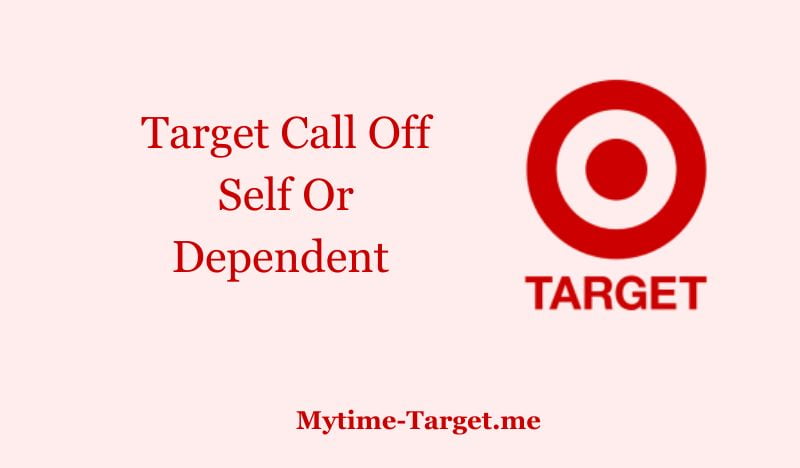Being a Target team member means there might be times you need to miss a shift due to illness, family emergencies, or other unforeseen circumstances. In such situations, Target has a call-off procedure to ensure smooth store operations and proper communication.
One of the options available when calling off is to select either self or dependent target. But what does this mean and how do you know which one to choose?
In this article, we’ll break down the meaning of call off self or dependent target and provide some guidance on when to choose each option.
Contents [hide]
What is Target Call Off Self or Dependent?
Call off self or dependent target refers to a specific option when notifying Target that you won’t be able to work your scheduled shift. This option is available through the Target Team Member Services (TMS) application, where team members can manage their schedules and request time off.
When calling off, you’ll be prompted to select either self or dependent target. Let’s take a closer look at what each of these options means.
Call Off Self
When selecting the call-off self option, it means that you won’t be able to work your shift due to personal reasons. This can include illness, appointments, or personal emergencies.
By choosing this option, you are taking responsibility for notifying Target and finding coverage for your shift if needed. You may also need to provide a reason for calling off, depending on your store’s policies.
Call Off Dependent Target
On the other hand, selecting call-off dependent target means that you won’t be able to work your shift due to reasons related to a dependent. A dependent can include a spouse, child, or parent who is relying on you for care or support.
This option is often used when a team member needs to take care of a sick family member or attend to a family emergency.
When to Choose Each Option?
Now that you understand the difference between call off self and dependent target, when should you choose each one? Here are some general guidelines:
Choose call-off self when:
- You are unable to work your shift due to personal reasons
- You don’t have any dependents who rely on you for care or support
- You have exhausted all other options for finding coverage
Choose call-off dependent target when:
- Your dependent needs your care or support during your scheduled shift
- You are the primary caregiver for a family member and can’t find alternative arrangements
It’s important to note that these guidelines may vary depending on your store’s policies. It’s always best to check with your team leader or HR representative for clarification.
Alternative Call-Off Options
Target might have other call-off options depending on your specific situation. These might include:
- Call Off- Other: This is for situations not covered by “Self or Dependent,” such as car trouble or a sudden power outage at your home.
- Leave of Absence: For extended absences due to medical reasons or other qualifying events, you might need to request a formal leave of absence.
Following Proper Call-Off Procedures
While “Self or Dependent” clarifies the reason for your absence, it’s crucial to follow Target’s established call-off procedures. These may involve:
- Calling your store: Notify your team lead or manager as soon as possible to inform them about your absence.
- Using the Target app: Some stores might allow call-offs through the Target app. In this case, select “Call Off- III (Self or Dependent)” and provide details about your absence.
By following these steps, you ensure your absence is documented correctly and minimize disruption to your team’s schedule.
Additional Tips
- Refer to your employee handbook: The handbook provides detailed information on Target’s call-off policy, including notice periods and potential consequences for missing shifts without proper notification.
- Maintain open communication: If you anticipate needing time off, communicate with your manager beforehand whenever possible. This shows responsibility and allows for proper scheduling adjustments.
- Be truthful: Provide accurate information when calling off. Falsifying a reason for your absence can lead to disciplinary action.
Conclusion
In summary, call off self or dependent target is an option available when notifying Target about your absence from a scheduled shift. Selecting “Self” means the absence is due to personal reasons, while “Dependent” is for situations related to a dependent.
By following proper call-off procedures and maintaining open communication with your team, you can ensure a smooth process and minimize disruption to store operations.
